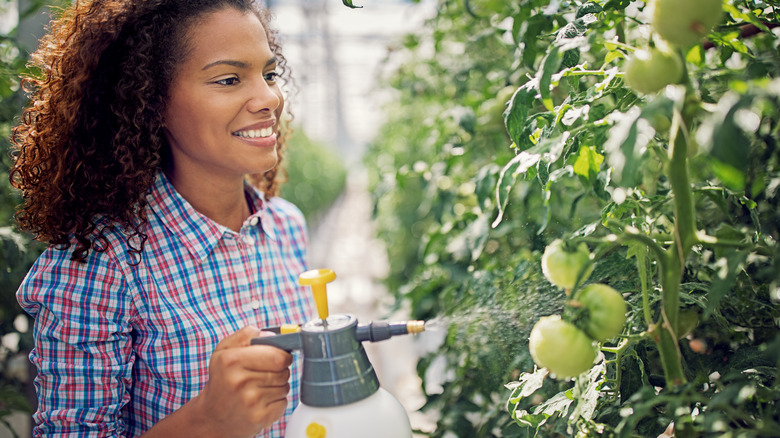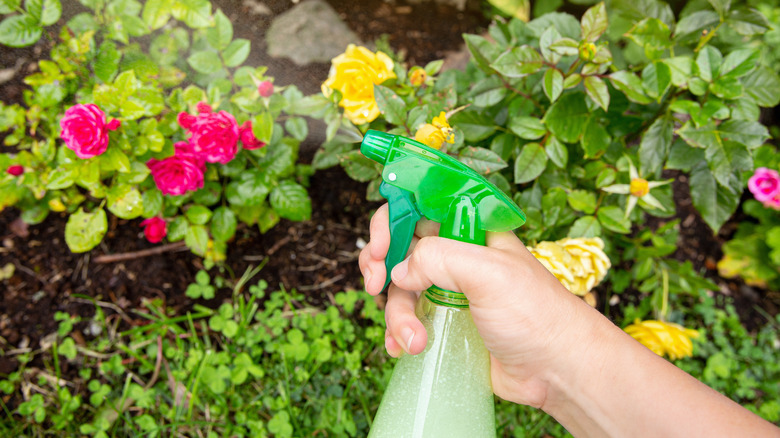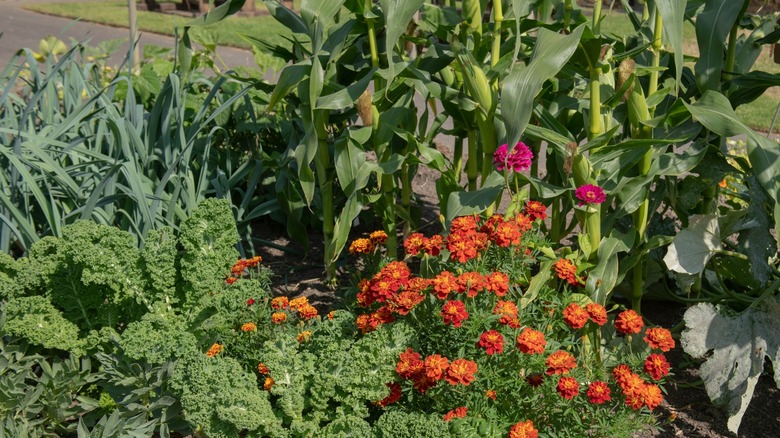The Most Common Misconception About Organic Pest Control
Many people have realized that in order to be as healthy as possible in today's world, growing some of our own food in an organic garden is one of the best things we can do. Choosing to grow organically is a big commitment that involves an entire lifestyle change. There are multiple aspects to consider, and one of the most important is pest control. The most common misconception people have about organic pest control is thinking that natural pesticides are always the answer and that they cannot harm plants.
Organic pesticides aren't something you should consider as a go-to solution in a chemical-free zone. This natural type of gardening often entails employing more than one method to achieve the desired results, so thinking that a product is going to solve all your problems isn't the right mindset. Further, eliminating pests entirely is not what you want in your organic garden anyway, and that's the result that some of these products can bring. Every insect has a role to play in our delicately-balanced ecosystem, and your job is simply to maintain that healthy balance. There are many other pest control methods that can be used besides reaching for a commercial product that could help you grow strong and thriving plants.
The dangers of organic pesticides
While organic pesticides don't use synthetic chemicals and aren't harmful to the environment like regular pesticides, this does not mean that they're harmless. After all, you're turning to them in order to kill something, which should always be a last resort. One of the problems with organic pesticides is the same one that occurs with synthetic versions: collateral damage that claims unintended victims. Whenever you use a product that kills pests, there are always beneficial insects that are affected, too. This is why they should only be used in extreme situations and with lots of care and consideration.
Neem oil and spinosad are two common organic pesticides that can have a positive outcome in certain situations. But even these should be used sparingly, and care must be taken to exclude unnecessary accidental deaths. Neem oil is one of the safest alternatives but can cause fungi to grow on plants and must be reapplied quite often. Spinosad is a poison used to control a variety of pests that target vegetable gardens, but it's highly toxic to bees and can harm beneficial insects before it dries. It is likely that you will need to employ other tactics in your organic garden to control pests effectively.
Alternative pest control methods
There are additional methods we can employ in organic gardening for better pest control when needed, but it's important to understand how crucial it is to work with Mother Nature rather than against her. Some pests in the garden are normal and can even be beneficial. When it comes to dangerous pests, you may be able to easily handpick them off of your plant, and this can be a good deterrent. You can also attract predators of the pests in question, such as praying mantises and ladybugs, to your garden. How do you do that, you ask? Simple: you plant the right plants!
For example, planting cornflower and mountain mint are great ways to attract beneficial insect predators. Further, there's a lot to learn about companion planting for maintaining a healthy balance of insects in your garden. Some plants can be used to deter certain pests, while others can be used as a sort of sacrificial trap crop. These will attract detrimental pests that will feed on these crops instead of attacking the garden vegetables you want to protect. As previously mentioned, some will attract beneficial predators as well. All of this can successfully keep bad insects off of your plants without harming beneficial bugs in the process.


